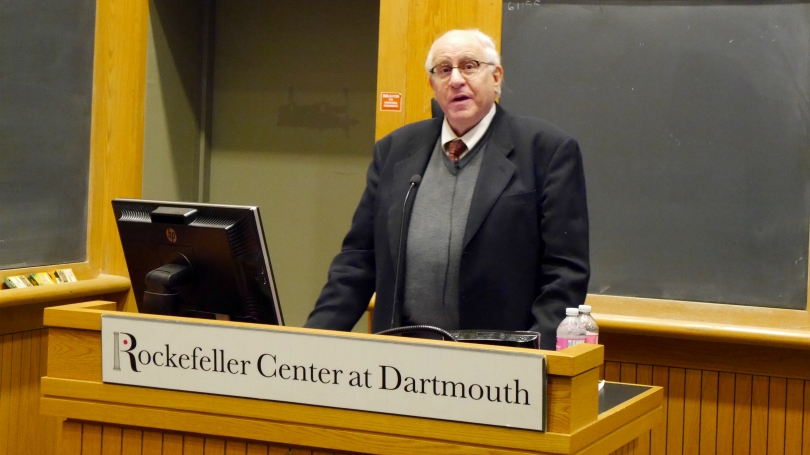
- Public Policy
- Leadership
- Funding
- News & Events
- About the Center
Back to Top Nav
Back to Top Nav
Back to Top Nav
Back to Top Nav
Jim Blumstein ranks among the nation’s most prominent scholars of health law, law and medicine, and voting rights. He is currently one of 13 University Professors at Vanderbilt; he was the first awarded that title in the law school and the first to receive a second tenured appointment in Vanderbilt Medical School. The director of Vanderbilt’s Health Policy Center, Professor Blumstein has served as the principal investigator on numerous grants concerning managed care, hospital management and medical malpractice. Professor Blumstein has been an Adjunct Professor at Dartmouth Medical School, and has served as former Tennessee Governor Phil Bredesen’s counsel on TennCare reform and has participated actively in a number of Supreme Court cases, arguing three. In 2014, Professor Blumstein was awarded a secondary appointment as a Professor of Management at the Owen Graduate School of Management. A dedicated teacher, Professor Blumstein has received the law school’s student-sponsored Hall-Hartman Teaching Award. He joined Vanderbilt’s law faculty in 1970.
Before James Blumstein’s lecture, “Policy, Politics, and the Affordable Care Act: A Look at Structure and Implementation,” on October 29, 2015, Nikita Bakhru ’17 sat down with Blumstein for an interview.
Nikita Bakhru (NB): What inspired your interest in law?
James Blumstein (JB): In terms of constitutional law, I moved to Tennessee to take a job at Vanderbilt University years ago, and I faced a restriction to access on voter registration: you have to live in the state for one year and in the county for a certain number of days. I thought that meant I couldn’t vote in New York. I filed a lawsuit challenging the one-year statewide limit and the 90-day county limit. It was my first case. The case went all the way to the U.S. Supreme Court and I argued it myself. I won that case in the Supreme Court: Dunn v. Blumstein. I was the first one from my Yale Law School class to argue before the Supreme Court, and I was my own client. I would guess that case resulted in voter registration of more people than any other case before the Supreme Court. I had been interested in law school and constitutional law before, but that case certainly wetted my appetite to stay in the field.
NB: You are a prominent national scholar of health law, law and medicine, and voting rights. What led you to become involved in these different areas all at once?
JB: I was always interested in constitutional law and voting rights. Healthcare is a different story. When I arrived at Vanderbilt, I was involved as one of the administrators of something called the Urban Regional Development Center, and I thought that part of urban policy should include health policy. At that point, I didn’t know much about health but, as an administrator, I thought health was important and I organized a series of non-credit programs along with Michael Zubkoff, a health economist. Once we did these non-credit programs, there seemed to be a strong interest and it reinforced my view that health there really was an undeveloped area. My credential as a health policy person had increased and actually got to the point where I knew something about it. Eventually, we administered a course and even published an article together in a leading health policy journal.
NB: How would you compare your experiences as a scholar to your experiences as a lawyer to your experience as a professor?
JB: Absolutely, they are complimentary. A part of being a lawyer is being a good teacher - teaching in a sense of advocating or explaining a point of view that everyone can understand. With a lot of generality, justice is a high-level abstraction that is a meaningless idea. Law allows you to take broad principles and operationalize them in ways that have practical applications. In one instance, I used my law knowledge and a graph to teach a governor, who himself was very qualified, about making cost:benefit-based decisions.
-Written by Rockefeller Center Student Program Assistant Nikita Bakhru ‘17